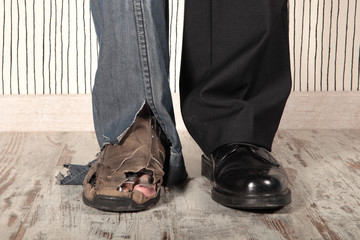This article was originally published by Tess Pennington at Ready Nutrition.

Oftentimes, those that are dependent on medical equipment feel the most vulnerable in the aftermath of an emergency or when the electrical grid is unpredictable. This is especially the case for those whose life is dependent on a continual source of power.
Oftentimes, those that are dependent on medical equipment feel the most vulnerable in the aftermath of an emergency or when the electrical grid is unpredictable. This is especially the case for those whose life is dependent on a continual source of power. While the elderly population is the first to come to mind in this situation, it is not the only part of the population that could be affected.
Those that rely on electricity-dependent medical equipment to stay alive include:
- Power wheelchairs or mobility devices
- Ventilators
- Oxygen concentrators
- Prescriptions that need to be kept at a certain temperature
- Infusions, intravenous equipment, and feeding equipment
- Chair lifts
- Communication devices
- Nebulizers
- CPAP and other sleep apnea devices
- Suction pumps used by individuals with difficulty swallowing
- Dialysis machines
While this list is not exhaustive, it shows that people of all ages who have a myriad of different afflictions could be affected.
Being without some of these devices for as little as a few minutes or more could be life-threatening
It is essential to understand that following a large-scale emergency, first responders are inundated with emergency calls and may not be able to reach a person in need in a timely manner. No one wants to see their loved one suffer!
If you are a caretaker, spouse or family member who has a loved one or friend dependent on electricity-dependent medical equipment the single most important step one can take is to prepare for the likelihood of being without power. Having a checklist to guide you and help you organize needed supplies and equipment will keep you on track. Moreover, checking this list every 6 months to ensure all items are accounted for and ready are vital.
Essential preparedness needs to support those on electricity-dependent medical equipment
There are multiple types of emergencies that can cause a grid failure: natural or manmade disasters, hacking, faults at power stations, damage to electric transmission lines, substations or other parts of the distribution system, a short circuit, cascading failure, or a fuse or circuit breaker operation. Being that all of these causes are out of your hands and could happen at any time, it is paramount that you prepare beforehand.
For battery dependent devices
-
- Have extra batteries charged and ready to go for durable medical equipment that requires rechargeable batteries. Regularly check back up equipment to ensure it will function appropriately in an emergency.
- Have alternate ways to charge batteries (such as using a USB adapter to charge batteries via a car).
- Make sure all equipment is labeled and that caregivers or family know how to operate it.
- Individuals who use battery-dependent communication devices should have an alternate method for communication readily available.
Talk to a healthcare provider about non-electricity dependent alternatives for the equipment listed above or ways to conserve equipment. For example:
- Individuals who use ventilators should keep a resuscitation bag available.
- Individuals who use nebulizers may be able to use inhalers with spacers, which don’t require a power supply.
- A doctor may recommend an oxygen user set equipment to reduce flow in order to conserve the supply and extend the life of the system.
As well, the stability of drugs can also be a factor if they need to be refrigerated.
- Use an evaporative cooler to keep prescription drugs cool.
- According to Diabetes Management, “If you do not have an evaporative cooler, for the first day of a power outage, you can keep medications cool in the freezer (although you should unplug it because it will freeze your medications if power is restored).
- Or you can use an insulated bag or lunchbox with a cold pack, ice, or frozen food from the freezer.” A Frio bag would be a valuable investment for keeping medications cold in an off-grid event. This is a reusable evaporative cooler whose cooling properties come from the evaporation of water. When activated, it keeps its temperature under 78F for a minimum of two days, even in temperatures of 100°F. This can keep insulin, and many other temperature-sensitive medications, cool and safe. As well, because it is lightweight and compact, it would be perfect for emergency kits and bug out bags.
Other considerations
Additionally, having an alternate power source on standby like a generator that can power medical equipment in off-grid situations would ensure a readily available power source in times of need. As well, talk to local electrical companies about programs available to help people with disabilities in emergency situations who are power-dependent. Many utility companies maintain a database of “priority people” who need power restored as soon as possible, and individuals with disabilities can sign up for this.
First responders can also use the US Department of Health and Human Services emPOWER website to locate individuals in the community who use electricity-dependent devices. The HHS emPOWER Map is updated monthly and allows responders to identify priorities in recovery and response efforts by displaying the total number of at-risk electricity-dependent Medicare beneficiaries in a geographic area, down to the zip code.
Preparing beforehand for times of off-grid events is the best way to keep your loved one safe. As always, make a list of needs and resources, check essential equipment, organize and plan accordingly. The time will come when you put the plan to action and the more organized it is, the easier the transition into the emergency will be.

and The Prepper’s Cookbook: 300 Recipes to Turn Your Emergency Food into Nutritious, Delicious, Life-Saving Meals
.
*This article contains affiliate links.










0 Comments